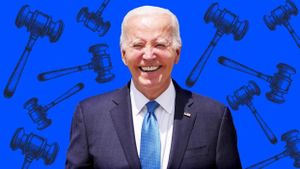Mali has undergone significant political changes recently, as the military junta has appointed General Abdoulaye Maiga as the new Prime Minister, replacing the ousted civilian premier Choguel Kokalla Maiga. This shift came mere hours after Choguel was dismissed, following his public criticism of the junta's leadership and their failure to provide clear timelines for returning the country to civilian rule.
General Maiga's appointment marks yet another consolidation of military power since the coups of 2020 and 2021, which led to the military's takeover. Until his new role, Abdoulaye Maiga served as the government’s spokesperson, regularly appearing on state television as one of the junta's primary representatives, particularly during the military's strategic shift toward Russia and away from former colonial power France.
Major General Abdoulaye Maiga is officially recognized as the new Prime Minister by decree from the junta chief, General Assimi Goita. The announcement was made on state television, solidifying the military's grip on governance amid worsening violence from jihadist groups and separatist movements throughout Mali.
This transition is accompanied by the junta's commitment to implement political reforms. Initially, the junta had promised to organize elections and restore civilian leadership by March 2024, but they have since postponed these elections indefinitely, causing unrest and frustration among the populace and international observers alike. The government restructuring suggests the military is intent on maintaining its authority, raising fears of prolonged authoritarian rule.
General Maiga, 43, has been associated with the junta since its inception, having adapted quickly to the military's changing hierarchy. While he was not part of the original group of colonels who led the 2020 coup, he has aligned himself closely with their leadership.
His background includes advanced academic qualifications, even holding a doctorate in international security, underscoring his credibility within military circles. His professional history involves roles at the African Union and the United Nations, but unlike some of his peers, he has not been directly involved in combat operations.
The political climate surrounding Maiga's takeover is fragile. Choguel Kokalla Maiga, the previous Prime Minister, had publicly expressed concerns about the junta's lack of transparency concerning the transition timeline, hinting at the potential for political instability and societal backlash. His remarks indicated discomfort within the ranks of the junta, as he struggled to navigate the delicate balance between supporting military authority and advocating for civilian governance.
The junta’s decision to respond to Kokalla’s criticisms with ouster and reappointment also reveals the potential peril for any dissent within the military’s ranks. Analysts suggest this could deter future civilian leaders from voicing legitimate concerns about governance and the civilian transition process, thereby strengthening military resolve.
General Maiga's prior actions during his tenure as government spokesman also highlight his role as the junta's mouthpiece. He has been characterized by his staunch criticisms of international scrutiny, particularly targeting former colonial ties with France and the narratives presented by Western media.
Under his communications, Mali has seen the reversal of agreements with France, resulting in strained diplomatic relations. Simultaneously, the junta has severed ties with Ukraine, emphasizing its pivot toward greater alliances with adversaries of the West.
The security situation within Mali remains dire, punctuated by incessant assaults from armed militant groups. The military's hold on power clashes with the people’s yearning for democratic processes. Just weeks prior to these recent political changes, Choguel Kokalla Maiga himself spoke to the risks associated with prolonged military governance, indicating possible dissent brewing both publicly and privately.
Mali has been entrenched in turmoil since 2012, with the situation exacerbated by continuous violent confrontations and separatism. The shift to military rule has not yielded significant improvements to the stability of the region, prompting voices within Mali and internationally to seek clarity on action plans for restoring democracy.
Overall, Abdoulaye Maiga's elevation to Prime Minister is emblematic of the military’s tightening grip, raising pressing questions about the viability of civilian governance and the junta's future intentions. The upcoming months are anticipated to be pivotal for Mali as political observers track the military's next moves and the possibilities for civilian engagement.
Given the increasingly complex social and political dynamics at play, the latest developments are closely monitored not just within national borders but across the West African region, as nations grapple with the balance of military influence and democratic aspirations.



